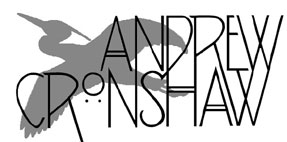
- Andrew Cronshaw website -
- Andrew Cronshaw MySpace -
- Cloud Valley Music website -
- Andrew Cronshaw website -
- Andrew Cronshaw MySpace -
- Back to Reviews Introduction page -
Written in
Folk Roots
issue 38, 1986
OSKORRI
Hau Hermosurie!
Elkar ELK78 (1985)
GANBARA
Banan-Banan
Elkar ELK113 (1985)
AMAIA ZUBIRIA & PASCAL GAIGNE
Egun Argi Hartan
Elkar ELK97 (1985)
BENITO LERTXUNDI
Gaueko Ele Ixilen Baladak
Elkar ELK81 (1985)
ANTONIO BRESCHI
Bezulari
Elkar ELK101 (1985)
Here's a bunch of releases from the Basque label Elkar (which has been
advertising in F.R. lately, so see the ads for information as to how to get hold
of them). All are worth a listen, but the most notable, I reckon, are those by
two bands, Oskorri and Ganbara, and a duo, Amaia Zubiria and Pascal Gaigne.
The last Oskorri album I reviewed was on the
German label Folk Freak, and showed a band drawing on the sounds of the European
folk revival to interpret new and traditional Basque material and make strong
statements regarding national awareness and pride, while producing music melodic
and witty enough to satisfy the non-Basque. That there is now a native Basque
label for this release is in itself a sign of progress.
Hau Hermosurie! ('What A Beauty!')
features, as before, an ethnic/mainstream instrumental blend, and such items as
a new Basque sword dance tune, a song about sheer hell in a Paris office job,
another about the fiddler lounging in Ibiza and missing a gig, variations on a
Navarran bagpipe tune, a perhaps unhelpfully bitter twisting of the Lord's
Prayer, and themes for a cartoon film and a TV puppet show. (I'll try to forget
about the presumably crowd-pleasing union of Clementine with Kalinka
as album closer). Philosophically the band is in the spirit of Runrig; in sound
it's nearer to Malicorne or perhaps Makám és Kolinda. The sleeve, in the grand
Morris On/XTC tradition of dressing-up, contains, together with multilingual
translations of the lyrics, a combined poster and calendar for 1985 (in Basque,
of course).
Ganbara isn't as overtly political as Oskorri,
nor, yet, as distinctive. It does have a fine singer, Maria Eugenia Etxeberria.
Side one is mainly slightly limp folk-soft-rock. Side two is much better,
opening with an energetic and much more solid traditional instrumental featuring
crumhorns and the like, fiddle, flute, Appalachian dulcimer, guitars, synths and
rhythm section. The improvement is maintained to the end of the album, covering
a straight pop song, a traditional ballad, and the title track, Banan-Banan
('One By One').
Another ballad, in fact what seems to be a Basque
version of The Bonny Hind, appears on the album by singer Amaia Zubiria
and guitarist Pascal Gaigne. Amaia's voice is light at the top end, husky at the
bottom, elegantly controlled. Gaigne uses acoustic and electric guitars and
guitar-synth, as well as bandoneon, with imagination and fine technique. Session
musicians add sax, clarinets, bass, piano and whatever "eskusoinua" means.
(2009 note: it means recording engineering). Material is virtually all
traditional in source. A very musicianly album.
None of the foregoing artists exhibits the
ailment of bursting into portentous speech, which seems to be part of a Celtic
Twilight, or Mists of Antiquity, syndrome. Two who do, Benito Lertxundi and
Antonio Breschi, seem to have caught it from each other, since they feature on
each other's albums and share a number of session musicians. The complete
syndrome seems more advanced in Breschi.
Lertxundi has a very pleasant voice, and
Gaueco Ele Ixilen Baladak is a very accomplished album. Most of his songs
are about love and poetry and dreams and stuff, one is traditional, and one says
he wishes he felt like Leonard Cohen, and encourages the women of the Basque
country and of Ireland to fight the future with songs, sleeping in the grass
harp's shadow, and their sons will be Bretons. Perhaps it loses in the
translation.
Antonio Breschi isn't Basque, he's from Florence.
The publicity blurb suggests he is the Keith Jarrett of folk. He's certainly
made a lot of albums, the first few with a band called Whisky Trail, and most
having Irish references. Some of his musicians are Irish, he seems to have heard
Alan Stivell, and probably Andreas Vollenweider. Like Keith Jarrett, he plays
the piano. All tunes are comp. Breschi. In a sleeve note Benito Lertxundi asks,
"Could he be a Druid, lost on the crossroads back in the night of time, when the
Atlantic grew ... ?"
A mixed bunch of records, then, with a bottom
line of extreme competence in musicianship, production and packaging, indicating
healthy developments in a beautiful and exciting country with a living tradition
many of whose features have connections in Britain.
© 1986
Andrew Cronshaw
You're welcome to quote from reviews on this site, but please credit the writer
and fRoots.
Links:
fRoots - The feature and
review-packed UK-based monthly world roots music magazine in which these reviews
were published, and by whose permission they're reproduced here.
It's not practical to give, and keep up to date,
current contact details and sales sources for all the artists and labels in
these reviews, but try Googling for them, and where possible buy direct from the
artists.
CDRoots.com in the USA, run by
Cliff Furnald, is a reliable and independent online retail source, with reviews,
of many of the CDs in these reviews; it's connected to his excellent online magazine
Rootsworld.com
For more reviews click on the regions below
NORDIC
BALTIC
IBERIA (& islands)
CENTRAL & EASTERN EUROPE, & CAUCASUS
OTHER EUROPEAN AMERICAS OTHER, AND WORLD IN GENERAL
- Back to Reviews Introduction page -